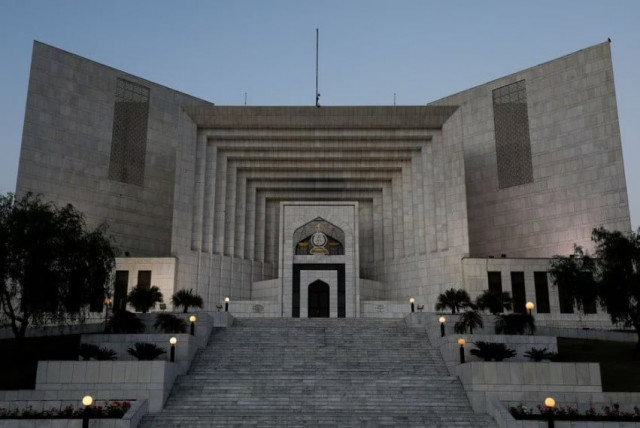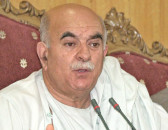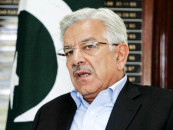Parliament, judiciary face off
Experts believe CJ has the key to avert crisis

Some experts believe that Chief Justice of Pakistan (CJP) Umar Ata Bandail’s reluctance to constitute a full court to hear crucial political cases has not only led to a clash between parliament and the apex court but also resulted in a division within the top judiciary.
Parliament and the judiciary came face to face after a three-judge bench—led by CJP Bandial and consisting of Justice Ijazul Ahsan and Justice Muneeb Akhtar—on April 4 ordered the Election Commission of Pakistan (ECP) to hold elections for the Punjab Assembly on May 14.
Rejecting the decision, the parliament first passed a resolution against the bench and later rejected a government bill seeking release of funds for the polls.
The coalition government and the ECP oppose polls in Punjab and Khyber Pakhtunkhwa (K-P) citing lack of funds and security concerns while the SC bench and the Pakistan Tehreek-e-Insaf (PTI) party are pushing for holding elections within 90-day constitutional period or a date close to it.
Justice Bandial last week sought record of the parliament’s proceedings with regard to the Supreme Court (Practice and Procedure) Act, 2023, while rejecting requests to form a full court to hear pleas filed against the piece of legislation that curtails the CJP’s powers.
In response, the lawmakers in the National Assembly called for accountability of the judiciary and judges and even urged the NA speaker to convert the whole house into a committee and summon the CJP before it to seek an explanation from him over seeking record of assembly proceedings.
“I think that parliament reached this level of defiance because the CJ continued to rely on a few judges while ignoring some of the senior most judges while hearing politically important cases,” said Pakistan Institute of Legislative Development and Transparency (Pildat) President Ahmed Bilal Mehboob.
“This led to a formal disagreement from within the SC in the form of judgments and orders. This phase of the restlessness could have come to an end if the CJP had convened a full court,” he said. The Pildat chief said the CJP has been conducting things rather unfairly up till now.
Mehboob said this crisis may come to an end after the CJP’s retirement but will leave a trail of bitterness. He described the ECP’s May 3 review petition as a “silver lining”.
“The petition has provided an opportunity to the bench to review their unenforceable order to hold election on 14 May without in-depth consideration of the ramifications of split elections and the prevailing security situation as later briefed by the top security officials to the CJP in his chamber.”
Mehboob hoped that the bench will steer itself and the country out of the current crisis, saying pleasantly surprising is the attitude of the two rival political sides, who did not agree on an election date but struck a conciliatory tone and may still agree on a date to hold elections for all the legislatures simultaneously.
However, renowned legal expert Faisal Siddiqi only sees chaos reigning supreme. For him, the current legal impasse is not merely a judicial crisis but judicial chaos, saying nearly half of the top court’s judges have disagreed and criticized the CJP over his reluctance to constitute a full court.
Read Parliament, judiciary stand face to face
Siddiqi, who regularly writes on legal issues, said he had predicted the scenario of constitutional stalemate in his column and interview in the second week of April.
The CJP fears judicial dissent, Siddiqi noted, saying the government while taking advantage of judges’ divide started openly defying the top court’s orders. He felt that only CJP Bandial could stop the judicial anarchy from spreading further as he has the powers as well as responsibility to do so.
For him, the solution lies in calling a full court administrative meeting to develop a consensus on the constitution of benches and listing of the cases as envisaged in the Act of 2023. He, however, expressed little hope that such consensus would be reached.
Former senator Mustafa Nawaz Khokhar while responding to the questions about the clash between the institutions where lawmakers want to ensure parliament’s sovereignty while judges wish to maintain judicial writ said that “these are all signs of an imploding society”.
“All institutions have lost credibility and are bitterly divided,” the former Senator said, “with no sanity in sight it’s the common Pakistani who’s paying the price.” He noted that inflation has hit through the roof and terrorism is on the rise.
Khokhar said that one can only hope that “all stakeholders will take a step back, take stock of the gravity of the crisis and decide on a date to go to polls for people of Pakistan to settle the matter in free and fair elections.”
Political expert Zaigham Khan said that the ongoing tussle is not just a clash between institutions but a clash between the three pillars of the State; parliament, executive and judiciary; as they are in a confrontation mode.
“The problem is old; the institutions are trespassing into each other’s space,” Zaigham said, recalling that the issue started from ex-CJP Iftikhar Chaudhry’s era when “his brand of Supreme Court started intruding into executive and parliament’s territory. This trend has continued.”
Zaigham said that the Supreme Court while interpreting the constitution has effectively re-written it and they have tried to do things that belong to the executive and parliament. “Parliament is hitting back but the problem is it can’t do much because there is no effective system of the Supreme Court’s accountability,” he said.
“If Supreme Court does something against the Constitution, there is hardly anything you can do about it,” Zaigham said, “this situation is dangerous because it is leading to sort of anarchy, which is very dangerous for the State; for the working of the State; and for judiciary. Both sides are at fault.”
Elaborating further about the fault, he said that elections must be held within 90 days but the way Supreme Court took over the cases from the high court and started conducting proceedings under Article 184/3 has complicated the problem.
“National Assembly’s resolutions are simply meaningless as the assembly acts through legislation and amendments in constitution,” he said, saying the National Assembly can be effective only in the current situation if it could amend the constitution. But, he said, that can’t happen right now.
“Supreme Court has lost much of its moral authority due to its own internal division and judicial activism, which has in fact turned into political activism,” he concluded.



















COMMENTS
Comments are moderated and generally will be posted if they are on-topic and not abusive.
For more information, please see our Comments FAQ